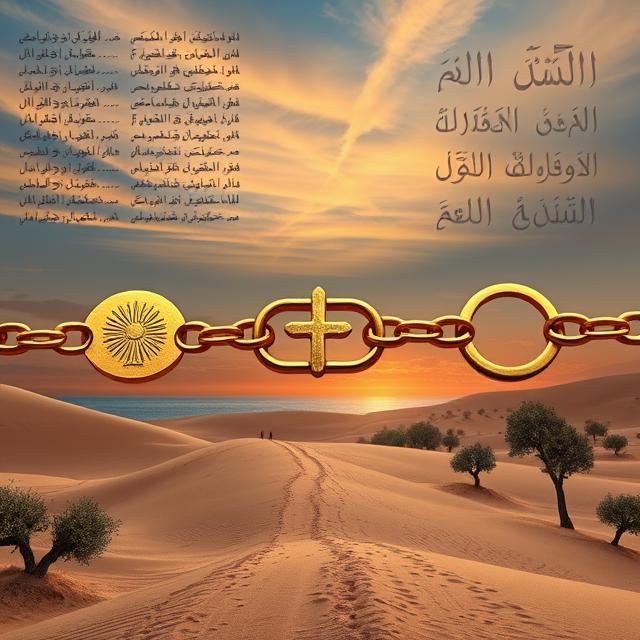
Table of Contents
Abrahamic Prophets Compared: Moses, Jesus, Muhammad
When we speak of the major religious figures who have defined the moral, theological, and cultural compass of billions, three names stand tall: Moses, Jesus, and Muhammad. They are the central figures in Judaism, Christianity, and Islam, respectively. Though each is revered differently, they form a chain of prophetic tradition recognized across the Abrahamic faiths.
But how do we compare these monumental figures without oversimplifying their unique missions? This post seeks to examine each prophet within his historical, theological, and spiritual context, identifying both the common threads and the distinct doctrines they represent.
I. Historical Context and Background
Moses (c. 13th–15th century BCE?)
- Born in Egypt during Israelite enslavement.
- Raised in Pharaoh’s household but became a liberator of the Hebrew people.
- Associated with receiving the Torah and Ten Commandments at Mount Sinai.
Jesus (c. 4 BCE–30 CE)
- Born into a Jewish family under Roman occupation.
- Preached in Galilee and Judea as a reformer, healer, and moral teacher.
- Crucified by Roman authorities; Christians believe he was resurrected.
Muhammad (570–632 CE)
- Born in Mecca, in a tribal, polytheistic Arab society.
- Received the Qur’an over 23 years, claimed to be the Seal of the Prophets.
- Unified Arabia under monotheism and established the foundations of Islam.
II. Revelation and Scripture
| Prophet | Scripture Received | Medium of Revelation |
|---|---|---|
| Moses | Torah (Pentateuch) | Direct speech from God (burning bush, Sinai) |
| Jesus | Gospel (Injil, in Islamic view); New Testament based on teachings | Preaching, parables, spiritual inspiration |
| Muhammad | Qur’an | Angel Gabriel’s dictation over two decades |
- Moses receives law—a covenant-based code for a newly freed nation.
- Jesus offers grace and transformation—a fulfillment and spiritualization of prior law.
- Muhammad provides a finalized, codified scripture, preserving monotheism and social law.
III. Theological Roles
Moses
- Central prophet in Judaism.
- Instrument of liberation, covenant maker.
- Lawgiver who brings structure to Jewish identity.
Jesus
- Viewed by Christians as the Son of God, divine and human.
- In Islam, a major prophet and Messiah, but not divine.
- Speaks of love, forgiveness, and the Kingdom of God.
Muhammad
- Seen as the final prophet in Islam.
- Brings together prophetic tradition from Adam to Jesus.
- Establishes religious, legal, and political systems.
The difference in divinity is key:
- Judaism and Islam reject the idea of divine incarnation.
- Christianity affirms Jesus as God in human form.
IV. Ethical and Social Teachings
| Theme | Moses | Jesus | Muhammad |
| Law & Justice | Legal codes, commandments | Inner transformation, grace | Sharia (moral, legal guidance) |
| Community | Nation of Israel | Church, universal family | Ummah (global Islamic community) |
| View of Others | Covenant people vs outsiders | Love your enemies | “People of the Book” given protected status |
Each prophet addressed their historical moment:
- Moses: Freedom and nation-building.
- Jesus: Reforming a legalistic tradition.
- Muhammad: Unifying tribes into a civilization.
V. Miracles and Signs
- Moses: Parting the Red Sea, plagues of Egypt, manna from heaven.
- Jesus: Healing the sick, raising the dead, walking on water.
- Muhammad: Qur’an itself seen as the primary miracle; night journey (Isra and Mi’raj).
In all three, miracles are signs of divine authority, but the emphasis shifts:
- Moses: Wonders that free a nation.
- Jesus: Acts of compassion and divine nature.
- Muhammad: Revelation as a literary, ethical, and theological miracle.
VI. Legacy and Influence
Moses
- Foundation of Jewish law, identity, and scripture.
- Revered in all three Abrahamic religions.
Jesus
- Founder of Christianity, the largest religion by population.
- Ethics, sacrifice, and resurrection central to Western morality.
Muhammad
- Founder of Islam, the second-largest religion.
- Influenced law, culture, science, and spiritual practice across the Muslim world.
All three are seen as exemplars of faith:
- Moses: Faith in adversity.
- Jesus: Love in suffering.
- Muhammad: Integrity in leadership.
VII. Shared Themes and Divergences
Shared:
- Monotheism.
- Prophetic mission.
- Emphasis on justice, mercy, prayer, and moral living.
Divergences:
- Nature of revelation and divinity.
- Views on salvation and afterlife.
- Interpretations of prophecy.
Modern interfaith dialogue often focuses on these shared values, recognizing the prophets as messengers of ethical transformation.
VIII. Conclusion: Three Lives, One Divine Story?
Comparing the Abrahamic prophets—Moses, Jesus, and Muhammad—reveals a complex yet profound continuity. Each prophet responded to the needs of his time, delivering timeless truths in unique ways.
Whether you see them as distinct or part of a single divine plan, their stories offer moral insight, spiritual inspiration, and a shared heritage of faith.
Perhaps in their echoes, we find a call: to seek justice like Moses, to love like Jesus, and to live in truth like Muhammad.